
The Ministry of Education and Training held a seminar to contribute ideas to perfect the draft Law amending and supplementing a number of articles of the Law on Education and the Law on Higher Education (amended) at the Banking University of Ho Chi Minh City (Photo: Huyen Nguyen).
One of the new points in the Law on Education and the Law on Higher Education (amended) this time is the emergence of the concept of co-organic.
Article 66 of the Law on Teachers stipulates that teachers in educational institutions in the national education system include: permanent teachers, co-permanent teachers, full-time contract teachers after retirement, and guest teachers.
The Government prescribes conditions, management, implementation of regimes and policies for co-teachers.
Along with that, the Law on Higher Education stipulates that university lecturers include permanent lecturers, co-permanent lecturers, full-time contract lecturers after retirement, and guest lecturers.
Representatives of Ho Chi Minh City University of Technology wondered how, if according to this regulation, public schools want to invite lecturers from non-public schools or vice versa, if non-public schools invite officials from public agencies, how will this be done?

Representative of Ho Chi Minh City University of Technology speaking at the conference (Photo: Huyen Nguyen).
In addition, for the health sector, schools will invite doctors with specialist level I and specialist level II to teach, but there is currently no regulation equivalent to master level according to the standard requirements for lecturer positions. This is still difficult and not suitable for reality.
Similarly, Associate Professor Dr. Nguyen Chi Ngon, Vice Chairman of the Council of Can Tho University, expressed: "This is a breakthrough and new concept, but I am worried that in the future there will be "competition" to open majors and enrollment quotas."
He gave an example of a lecturer teaching at both school A and B, but mostly teaching at school B. So when opening a major, which school will it belong to? These things need to be clarified.

Associate Professor, Dr. Nguyen Chi Ngon, Vice Chairman of the Council of Can Tho University (Photo: Huyen Nguyen).
Dr. Thai Thi Tuyet Dung, Deputy Head of the Inspection and Legal Department, Ho Chi Minh City National University, is concerned that the concept of co-staff teachers can cause confusion.
According to Ms. Dung, permanent teachers are very much related to enrollment targets. Currently, there are many teachers who sign contracts with schools but do not work full-time, do not pay social insurance, and are not employees of the school.
“This leads to a situation where schools set very high enrollment targets but the number of permanent lecturers is very low. I propose that permanent lecturers must have their social insurance covered by the university,” said Ms. Dung.
Another issue that many schools such as Ho Chi Minh City University of Economics, Can Tho University, Ho Chi Minh City University of Architecture, etc. have expressed concern about is the organization and operation of the branch campus.
According to the provisions of the draft, a branch of a domestic higher education institution is a training location different from the head office, has no legal status, is organized and operates according to the regulations on organization and operation of the higher education institution, and is licensed to operate training according to the provisions of Article 21 of this Law.
Schools are concerned that this will inadvertently increase the number of management units and make the apparatus cumbersome.
Previously, giving comments at the discussion on October 9 in Hanoi, Mr. Le Truong Tung, Chairman of the Board of FPT University, suggested clarifying the concept of joint-tenure lecturers, considering expanding the target group to attract talented people to participate in teaching, not limiting it to being civil servants and working at scientific and technological organizations.
Regarding preferential land and tax policies, Dr. Le Truong Tung proposed exempting land use fees for educational activities, along with appropriate management mechanisms to ensure efficiency and create development conditions for educational institutions.
Regarding university autonomy, Mr. Tung said that some provisions in the draft Law on Higher Education (amended) tend to tighten autonomy. Autonomy must be understood as a legal mechanism to help schools make their own decisions within the legal framework, instead of the current "ask - give" mechanism.
Deputy Minister of Education and Training Nguyen Van Phuc said that the two above-mentioned draft laws are expected to be submitted to the National Assembly at the October 2025 session. During the drafting process, the Ministry has closely coordinated with ministries, branches, and localities; organized many seminars, discussions, and consulted experts, scientists, and education managers nationwide, ensuring proper implementation of the Law on Promulgation of Legal Documents.
He paid special attention to transitional provisions, such as the termination of school council activities and the validity of documents issued by the council before, and detailed instructions are needed for schools to operate smoothly when the law comes into effect.
Other issues such as distinguishing between training facilities and branches, regulations on schools within universities, departments, or conditions to ensure training quality at many locations will also continue to be carefully considered.
“Any amendments must aim to remove practical difficulties, not create new barriers, while ensuring consistency in the national education system and approaching international standards,” Deputy Minister Nguyen Van Phuc affirmed.
Article 66 of the Law on Teachers stipulates:
1. Teachers in educational institutions in the national education system include:
a) A permanent teacher is a teacher who is recruited and works full-time at only one educational institution;
b) A co-tenant teacher is an official of a public science and technology organization assigned to teach and educate as a tenured lecturer at a public educational institution;
c) A full-time contract teacher after retirement is a retired teacher who is signed a full-time labor contract by an educational institution to perform the duties of a teacher;
d) A guest lecturer is a person invited by an educational institution to teach at least one subject, module, course, topic or content in an educational program or training program implemented by the educational institution. Guest lecturers include guest teachers and guest lecturers.
2. Full-time teachers must comply with the provisions of the Law on Teachers.
3. The Minister of Education and Training shall provide detailed regulations on full-time contract teachers after retirement and guest teachers; and prescribe standards and working regimes for joint teachers.
4. The Government prescribes conditions, management, implementation of regimes and policies for co-staff teachers.
Source: https://dantri.com.vn/giao-duc/ban-khoan-giang-vien-dong-co-huu-lo-ngai-tranh-gianh-chi-tieu-tuyen-sinh-20251010185321787.htm


![[Photo] Unique Phu Gia horse hat weaving craft](https://vphoto.vietnam.vn/thumb/1200x675/vietnam/resource/IMAGE/2025/10/10/1760084018320_ndo_br_01-jpg.webp)
![[Photo] Opening of the World Cultural Festival in Hanoi](https://vphoto.vietnam.vn/thumb/1200x675/vietnam/resource/IMAGE/2025/10/10/1760113426728_ndo_br_lehoi-khaimac-jpg.webp)
![[Photo] Ho Chi Minh City is brilliant with flags and flowers on the eve of the 1st Party Congress, term 2025-2030](https://vphoto.vietnam.vn/thumb/1200x675/vietnam/resource/IMAGE/2025/10/10/1760102923219_ndo_br_thiet-ke-chua-co-ten-43-png.webp)



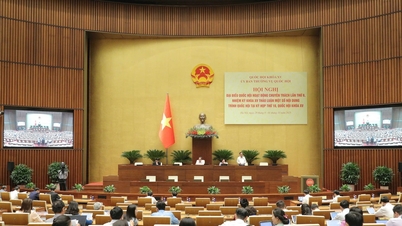

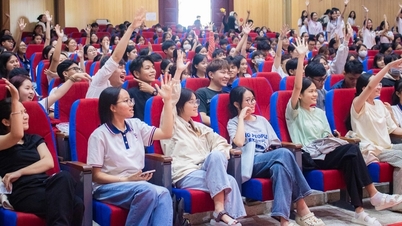
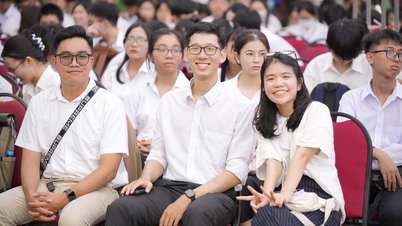






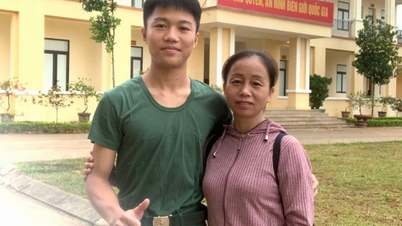



![[Video] Ho Chi Minh City: Many subjects still lack teachers](https://vphoto.vietnam.vn/thumb/402x226/vietnam/resource/IMAGE/2025/10/10/1760108638254_gv-png.webp)


























































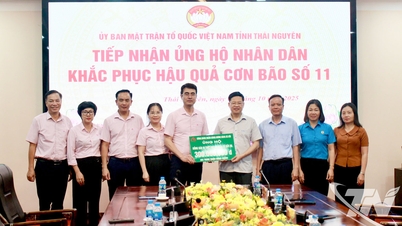

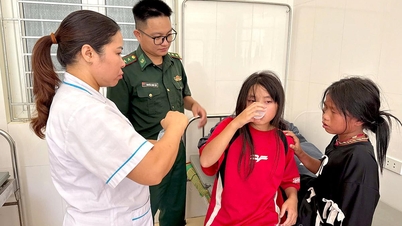


















Comment (0)